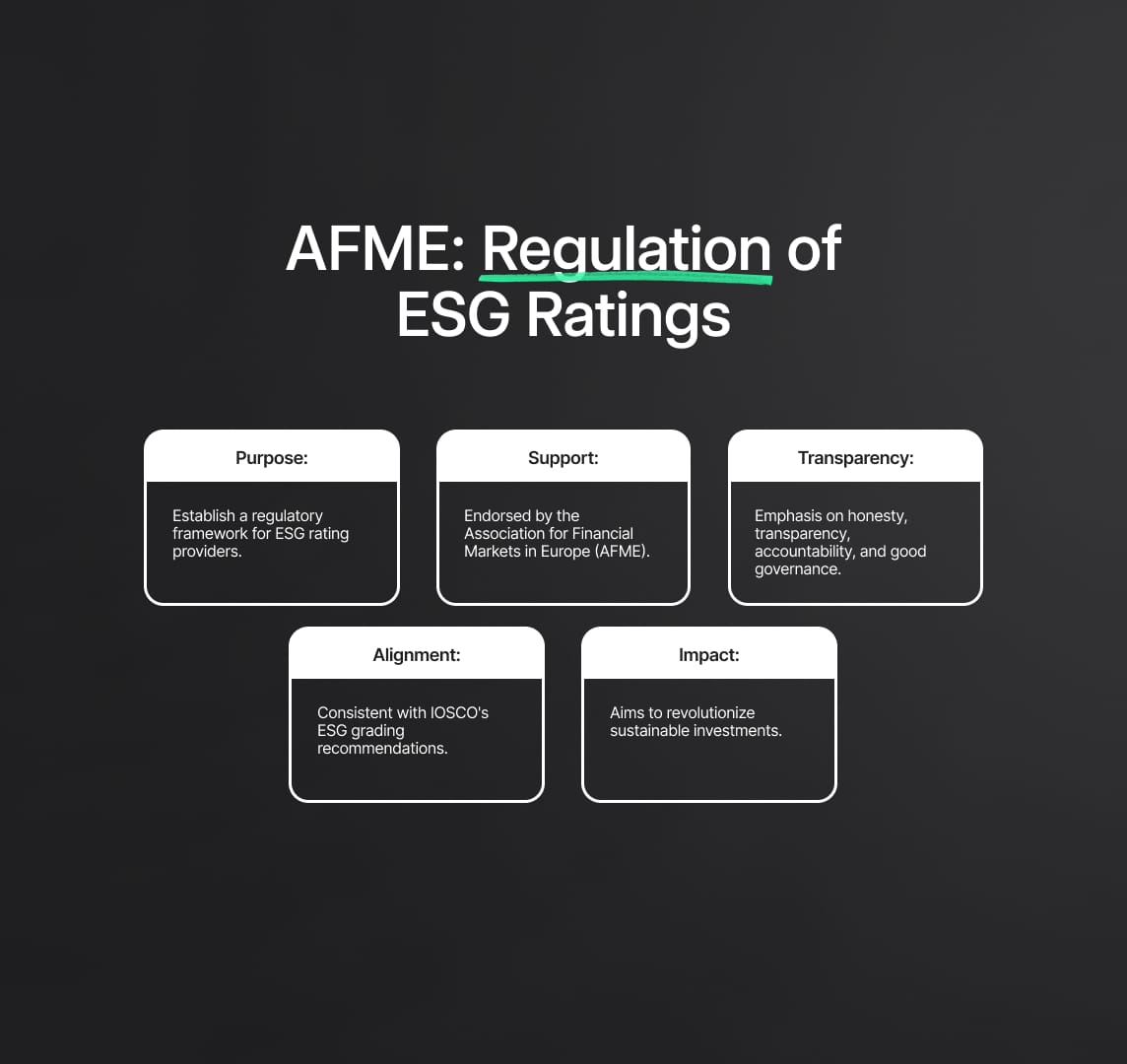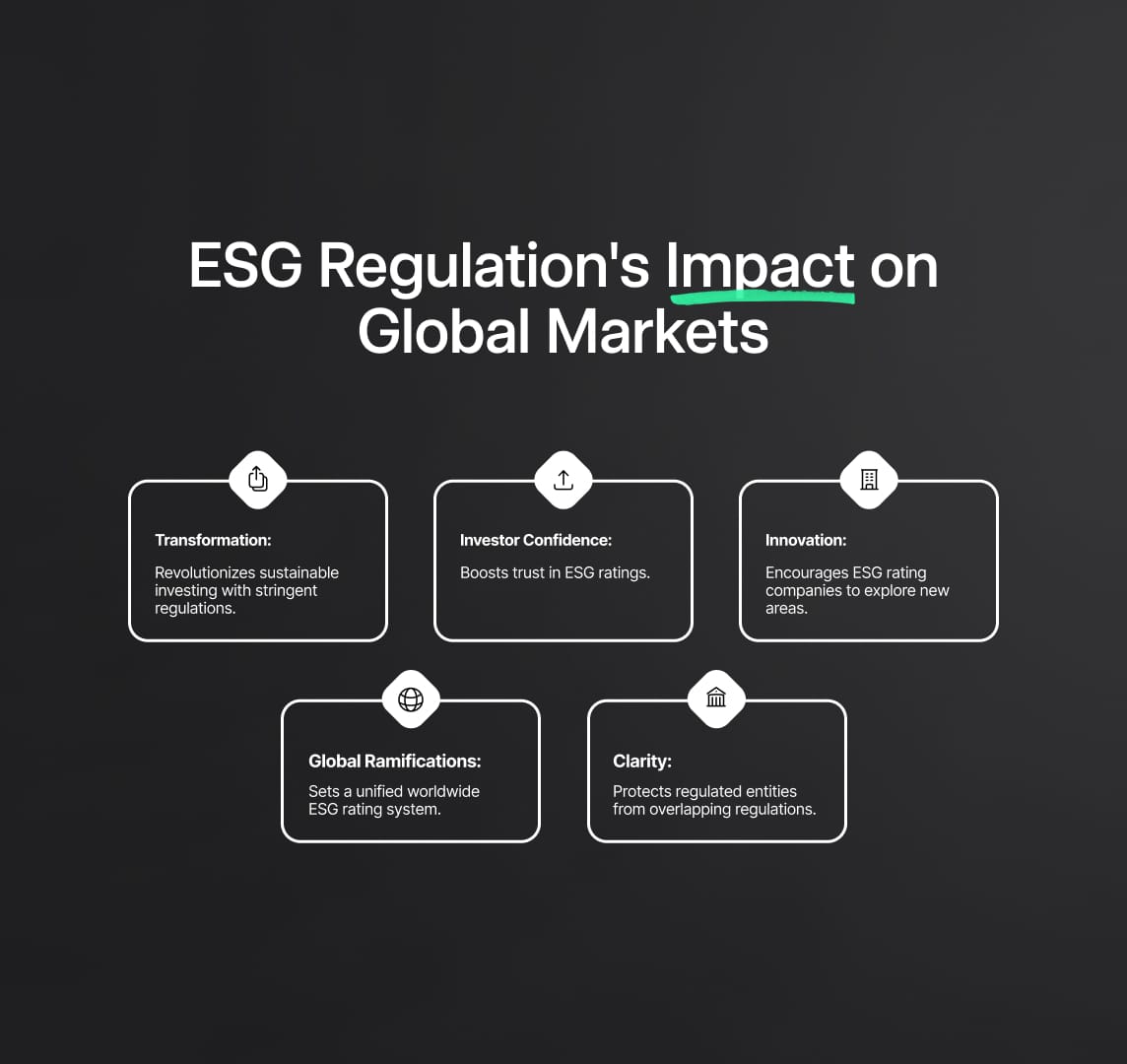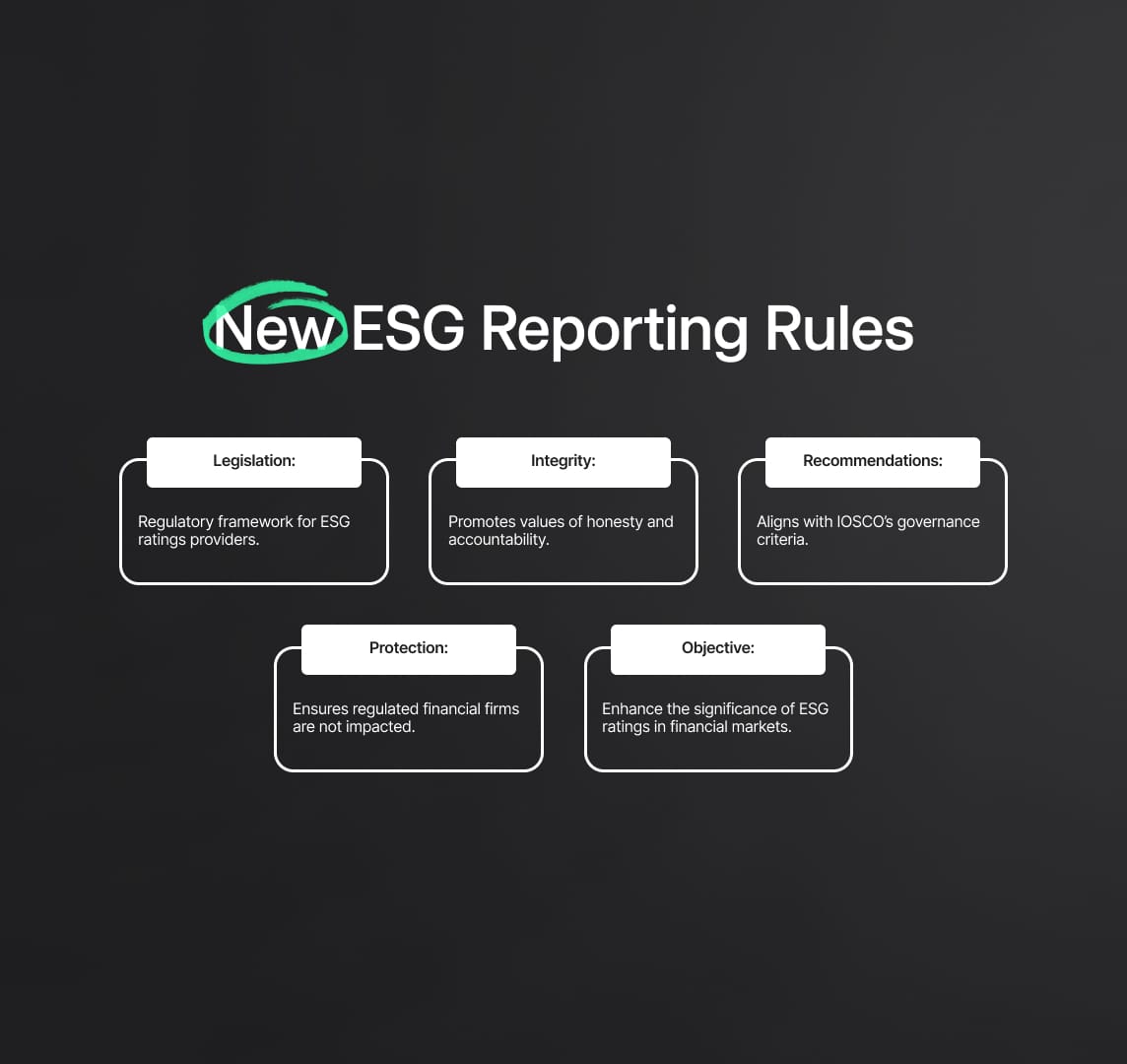AFME Regulation of ESG Ratings
Europe's financial landscape is on the brink of transformation with the proposed EU ESG Ratings Regulation. Supported by AFME and aligned with IOSCO, this change aims to enhance trust in ESG ratings, potentially revolutionising sustainable investments.

AFME Embraces Proposed EU ESG Ratings Regulation: Promoting Transparency and Integrity in ESG Ratings
The suggested EU ESG (Environmental, Social, and Governance) Ratings Regulation has received support from the Association for Financial Markets in Europe (AFME). To improve the transparency and integrity of ESG ratings products, the proposed legislation seeks to provide a regulatory framework for ESG ratings providers, who are not currently subject to any laws. The International Organization of Securities Commissions (IOSCO) ESG grading recommendations are in line with the AFME's support of this project. In addition to demonstrating the significance of ESG ratings in the financial markets, the AFME's support for the proposal promotes the use of the values of honesty, transparency, accountability, and good governance in ESG rating operations. In addition, AFME expressly endorses the IOSCO Recommendations' adoption of transparency and governance criteria for ESG rating providers. Additionally, as regulated financial firms' goods and operations are already subject to authorization and regulatory obligations under current regulations, the plan seeks to guarantee that the new restrictions do not unintentionally trap them.

ESG Regulation in Europe and Its Profound Impact on Global Financial Markets
We are about to witness a dramatic change in the European financial scene. The proposed EU ESG (Environmental, Social, Governance) Ratings Regulation has the support of the Association for Financial Markets in Europe (AFME). It's not a coincidence that this connection with the International Organization of Securities Commissions (IOSCO) exists. It's a calculated move that emphasizes how crucial ESG ratings are becoming to the dynamics of the modern global financial markets.
Sustainable investing has developed from a specialized factor to a key one in financial choices. The goal of introducing this new law is to firmly establish ESG ratings as the focal point of this shift. Investors should have more faith in ESG ratings as a result of the regulation's strict transparency and governance requirements.
However, how does this apply to the average investor? The knock-on effect can be significant. We should expect a spike in the number of stakeholders incorporating ESG factors into their investment decisions as a result of increased confidence in ESG ratings. This may herald the start of a period in which environmentally friendly investments are the rule rather than the exception. This change could serve as the impetus for a global shift in capital allocation toward sustainable practices as green projects gain traction on a global scale.
Rules frequently have the unintended consequence of inhibiting creativity. The proposed ESG Ratings Regulation appears to depart from this standard, nevertheless. ESG rating companies are anticipated to explore more cutting-edge areas while still making an effort to follow the new guidelines. The development of sophisticated ESG rating systems, processes, and platforms that provide detailed insights into sustainable investing may result from this investigation.
What's more, this is about more than just Europe getting its house in order. There are significant worldwide ramifications. Through the establishment of a strong framework that ensures parity between European and non-European ESG rating agencies, the EU is essentially setting the stage for a unified worldwide ESG rating system. In order to minimize market fragmentation and ensure that the globe evolves toward a unified ESG standard, a consistent third country regulation can serve as a bridge.

A Protective Shield for Regulated Entities
The proposed rule provides clarification to current financial organizations in addition to its main goal of regulating and streamlining ESG ratings. This rule's intention to shield financial firms that are already subject to regulation from possible regulatory overlap is one of its more complex features. With this foresight, entities may function effectively within the larger framework without being hampered by needless regulatory obligations as the landscape changes.
Transparency, cooperation, and a greater emphasis on sustainable practices are hallmarks of the future promised by the EU's ESG Ratings Regulation. It's a careful balancing act, though. The regulatory authorities must make sure that the market's dynamism is unimpeded while encouraging innovation and maintaining clarity.
The world's financial community is waiting anxiously to see what Europe will do at this pivotal moment. If implemented well, the ripple effects of this law could pave the way for a redesigned global financial ecosystem in which sustainability is not an afterthought but a fundamental principle.

Read More

Reduce your
compliance risks

